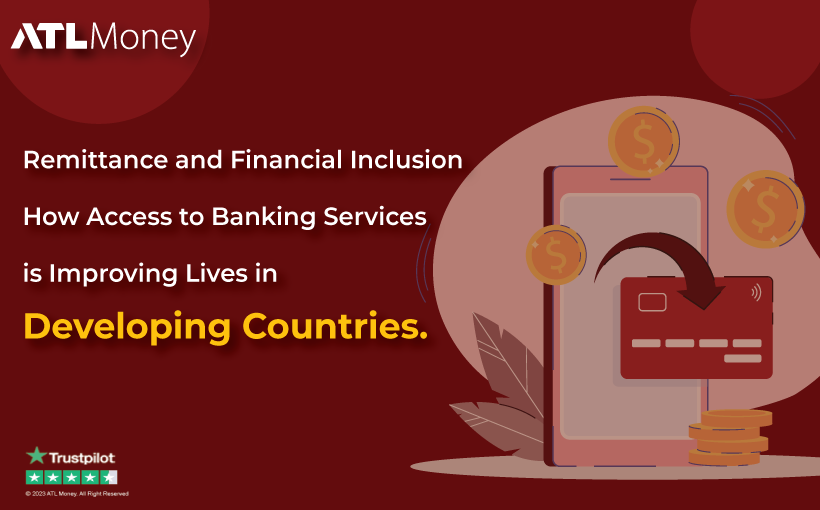In today’s globalized world, remittance has become a vital lifeline for millions of people living in developing countries. For many families, remittances represent a significant portion of their income and are used for everyday expenses, education, healthcare, and even starting small businesses.
However, access to banking services is a major challenge for people living in rural areas and low-income communities, making it difficult for them to send and receive money quickly, securely, and affordably. This is where financial inclusion comes in – the idea that everyone should have access to financial services, regardless of their income or location.
In this blog post, we will explore how remittance and financial inclusion are interconnected, and how increasing access to banking services is improving the lives of millions of people in developing countries.
The Importance of Remittance for Developing Countries.
Remittance plays a crucial role in the economic development of many developing countries. According to the World Bank, remittance flows to low and middle-income countries reached a record high of $540 billion in 2020, with remittance flows to Sub-Saharan Africa increasing by 2.3% despite the COVID-19 pandemic. Remittance is often used to cover basic needs such as food, housing, and healthcare, as well as to invest in education and small businesses.
The Challenge of Financial Inclusion.
Despite the importance of remittance, many people in developing countries lack access to formal banking services. According to the World Bank, around 1.7 billion adults worldwide do not have a bank account, with a disproportionate number of these individuals living in developing countries. This lack of access to banking services can limit the ability of individuals and households to save, invest, and access credit, hindering economic growth and development.
The Role of Technology in Improving Financial Inclusion
In recent years, technological advancements have played a significant role in improving financial inclusion in developing countries. Mobile money services like ATLMoney, for example, have enabled millions of people to access basic financial services such as savings accounts, payments, and money transfers. This has helped to increase financial inclusion, particularly in areas where traditional banking services are not available.
The Benefits of Financial Inclusion
Access to banking services can have a transformative impact on the lives of individuals and households in developing countries. It can help to increase financial resilience, enabling families to better manage risks and cope with unexpected expenses. It can also facilitate access to credit, enabling small businesses to grow and generate income. Additionally, access to banking services can help to reduce poverty and inequality, enabling individuals and households to save and invest in their future.
Remittance and financial inclusion are intricately linked, with access to banking services playing a critical role in improving the lives of individuals and households in developing countries. Technological advancements, particularly in the area of mobile money, have played a significant role in improving financial inclusion in these regions. By continuing to invest in and expand access to banking services, we can help to create a more inclusive and sustainable future for all.
To send money anywhere, try sending money with ATLMoney, to enjoy the best rates and affordable fees,
